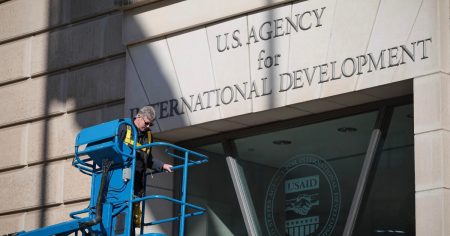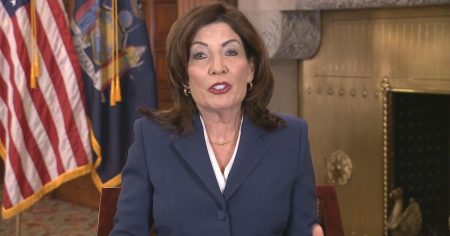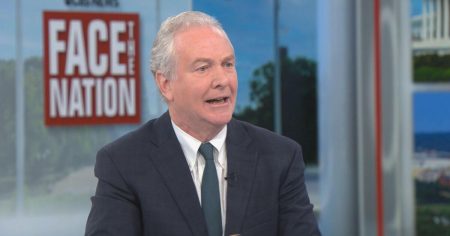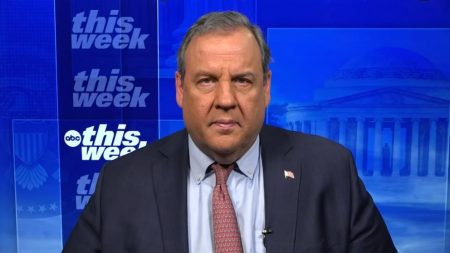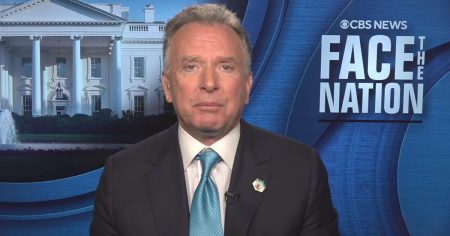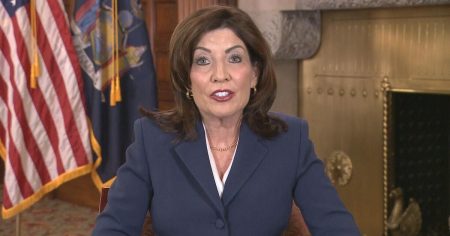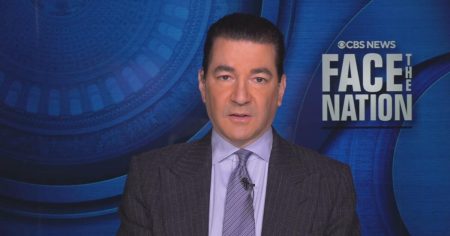A Call for Change: Senator John Curtis on Leadership, Accountability, and the Path Forward
Introduction: A Nation Demanding Change
In a recent interview on "Face the Nation with Margaret Brennan," Utah Republican Senator John Curtis shared his perspective on the dramatic shifts underway in Washington, including the President’s recent decision to dismiss the Chair of the Joint Chiefs and other senior military officers. Senator Curtis framed these actions as part of a broader "stop the car moment," a phrase he used to describe the public’s demand for significant change. The American people, he argued, are frustrated with the status quo on issues like the economy, the border, and government spending. This frustration, Curtis believes, is driving a desire for bold, even disruptive, measures to address these challenges. While acknowledging concerns about the potential risks of such changes, Curtis emphasized that the public’s push for dramatic reform cannot be ignored.
The "Stop the Car" Moment: Understanding Public Frustration
Curtis repeatedly referenced the "stop the car moment" as a metaphor for the nation’s collective desire for accountability and action. This phrase, he explained, reflects the idea that the American people have grown tired of empty promises and incremental progress. They are demanding systemic change, even if it means disrupting the existing order. Curtis pointed to the 2024 election as a clear signal of this sentiment, suggesting that voters knowingly elected a president who campaigned on shaking up the system. While some have expressed alarm at the pace and scope of these changes, Curtis argued that they are necessary to restore trust and confidence in government. The public, he said, is willing to endure short-term discomfort for the promise of long-term results.
Leadership and Accountability: The Dismissal of Military Leaders
One of the most contentious topics during the interview was the President’s decision to dismiss several top military leaders, including the Chair of the Joint Chiefs. When asked whether this move risked politicizing the military, Curtis deflected, stating that such decisions are ultimately the President’s prerogative as commander-in-chief. He acknowledged the importance of institutional knowledge and continuity, particularly at a time of heightened geopolitical tensions, but emphasized that the public’s desire for change takes precedence. Curtis also suggested that the military, like other branches of government, is not immune to the need for accountability and reform. While he expressed trust in the President’s judgment, he also hinted at the complexities of transitioning new leadership into key roles, noting that the process would likely be challenging and may require congressional waivers in some cases.
Rethinking Government Efficiency: The Role of Federal Employees
The conversation also touched on the administration’s efforts to streamline government operations, including a controversial directive requiring federal employees to report their accomplishments via email. Curtis acknowledged the concerns of many federal workers, particularly in states like Utah, which has a significant number of federal employees. While he agreed that accountability is necessary, he urged the administration to approach these efforts with compassion and respect for the individuals affected. Drawing on his own experience as a mayor, Curtis emphasized the importance of treating employees with dignity, even when difficult decisions must be made. He argued that it is possible to prioritize efficiency without resorting to harsh or dehumanizing measures, and he called on leaders to balance fiscal responsibility with empathy.
The Role of Congress: Balancing Power and Responsibility
Throughout the interview, Curtis repeatedly emphasized the role of Congress in addressing the nation’s challenges. He acknowledged that lawmakers have, in many cases, failed to deliver on their promises, leaving the White House to take unilateral action. While he expressed confidence in the constitutional system of checks and balances, Curtis also called on his colleagues to step up and take responsibility for solving the nation’s problems. He acknowledged the political risks of speaking out against the administration’s actions but suggested that quiet diplomacy may be more effective than public criticism. Ultimately, Curtis believes that the constitutional system is designed to handle such conflicts, and he expressed faith that the courts and Congress would ensure that any overreach is corrected.
Conclusion: Navigating Change with Compassion
As the interview came to a close, Curtis struck a note of optimism, suggesting that the current period of upheaval is an opportunity for renewal. He acknowledged that the path forward would be challenging, but he expressed confidence in the ability of the American people and their leaders to navigate these changes. While he supported the administration’s efforts to drive reform, he also urged a approach grounded in compassion and respect for the individuals affected. Curtis’s message was one of balance: change is necessary, but it must be pursued in a way that honors the dignity of all Americans. As the nation moves forward, he called on leaders to remember the human impact of their decisions and to work toward solutions that reflect the values of fairness, accountability, and kindness.






